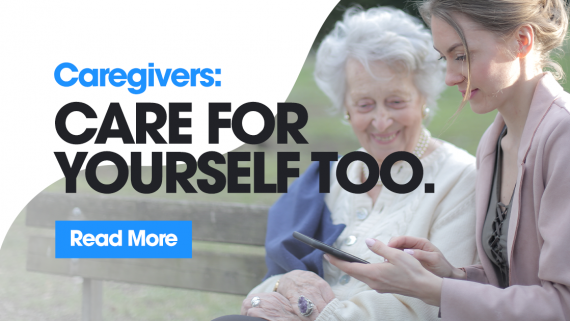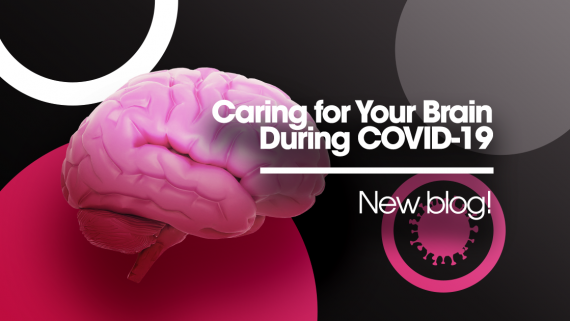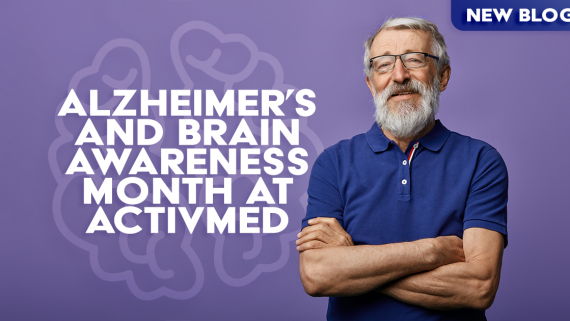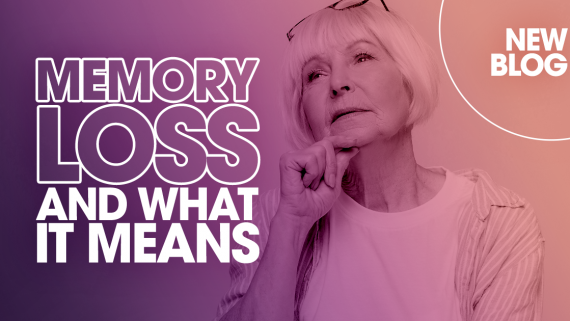Alzheimer’s is a progressive disease that impairs memory and many other essential mental functions. Although the changes are more subtle at first, eventually those diagnosed will need the help of a caregiver to perform their daily tasks. In many cases, the caregiver is a loved one or family member that volunteers to support them. Being a caregiver can be physically, emotionally, and mentally draining. Learning to care for yourself is the best way to ensure you will be there to care for your loved one.
From Care Partner to Caregiver and Burnout
In the early stages of Alzheimer’s, many function independently, and your role is more of a care partner who will help support and plan for the future of your loved one. As the disease progresses, their reliance on you will continue to increase until they need you 100%. Navigating the physical and emotional ups and downs of this journey can test even the most patient souls. It can be all-consuming, and just like any fire, it will eventually burn itself out.
Approximately 15 million Americans provide unpaid care to an older adult. Those that provide substantial care are more likely to have physical and emotional health issues. Caregiver burnout is real and can snowball over time. Recognizing the signs of burnout can help you get the help you need to continue providing the best care possible.
Signs of Caregiver Burnout:
- You have much less energy and always exhausted
- Increasingly impatient and irritable with who you are caring for
- Neglectful of your own needs
- You get sick more often
How to be a Healthy Caregiver

One of the most important things you can do as a caregiver is to take care of yourself. Keep your health a priority by seeing your doctor when needed, exercising regularly, and eating a healthy diet. The National Institute on Aging also recommends:
- Ask for help, and take it when you need it
- Take breaks during the day
- Join a support group online or in-person
- Spend time with friends
Research for a Better Future Free of Alzheimer’s
As an Alzheimer’s caregiver, you witness firsthand how this disease changes a person until very few pieces remain of their former selves. Alzheimer’s has no cure, and there is no way to stop the progression of it. Scientists and researchers are hard at work, identifying potential new ways to detect, prevent, manage, and eventually cure it. Clinical research studies and volunteers who participate in them provide a way to determine if they are safe and effective.

If you or a loved one has been diagnosed with Alzheimer’s, research studies may be an option. All Alzheimer’s participants must have a study partner that spends some time with them during the week, to accompany them to some of the study visits. This relationship provides researchers additional insight into the changes that have occurred over time with the patient. Participating in research may provide caregivers another layer of support and education about memory loss.
Caregivers do not need to attend each study visit, sometimes allowing the flexibility to do some shopping or enjoy some alone time. Regular assessments at study visits and conversations with study staff also help caregivers stay informed on their loved one’s health. Caregivers make many decisions with and for their loved ones, consider participating in a research study.
To learn more about the Alzheimer’s studies currently enrolling at our Methuen, MA location, call (978) 655-7155, or click here.
References:
https://www.alz.org/help-support/caregiving
https://www.nia.nih.gov/health/getting-help-alzheimers-caregiving
https://www.helpguide.org/articles/stress/caregiver-stress-and-burnout.htm
Stress is a way of life these days, it seems. COVID-19 has effectively changed the way we live our lives, at least for the foreseeable future. Most of us know that stress is not good for the body, but do you know how it impacts our health? Prolonged exposure to stress changes the way our brains function. To dive deeper, it reverts to its primitive functions that help us sense and respond to danger. We become faster at solving quick issues but lose the ability to plan or deal effectively with complex problems. Stress doesn’t have to run your life. With a little basic care and healthful changes, you too can embrace the stress.

Stress Relief Tips
There is so much that is beyond our control, and the truth is that stress is ever-present. Fortunately, there are things you can learn to help manage how you react to stress and help you relax your brain.
- Meditation– Meditation can help relax your mind, and help you become less reactive to stress triggers.
- Restructure Stress Response– Cognitive restructuring is a technique that changes the habitual thinking patterns that trigger your stress response.
- Stress Management– Learning more about stress, stress management, and what triggers your stress response will help you feel more confident to handle what life throws at you.
- Confide in Someone You Trust– Talk things out with a trusted loved one instead of staying in your thoughts. Surround yourself with those who will help you identify you are stressed, and when to take action.
Brain Exercises
Taking care of your brain is important at any age. Engaging in regular brain exercises helps improve memory and focus so you can keep up with daily life. In our later years, brain changes begin to affect memory, and these activities become more and more important. Jigsaw puzzles, dancing, learning a new skill, and meditation are some ways you can challenge your mind.
June is Alzheimer’s and Brain Awareness Month. The program’s focus is on providing brain health education, resources, and tools for Alzheimer’s and other forms of dementia. One of the ways they do this is by helping to raise money for the vital research needed to detect, treat, and eventually cure these conditions through clinical research studies.

ActivMed Practices & Research can help you take charge of your brain health. You can get involved by participating in one of the Alzheimer’s research studies at our Methuen location or take advantage of our telehealth memory screens. To learn more about our free telehealth memory screens, call the Methuen office at (978) 655-7155 or by click here.
References:
https://www.sciencenews.org/article/coronavirus-covid19-stress-brain
https://www.verywellmind.com/how-to-relax-your-mind-3144475
https://www.healthline.com/health/mental-health/brain-exercises#focus
An estimated 50 million people are living with Alzheimer’s or other dementia. June is the inaugural commencement of Alzheimer’s and Brain Awareness Month. The Alzheimer’s Association states that “every person who has a brain is at risk.” This is the perfect time to act and create awareness for this expanding public health crisis. ActivMed is taking action in another way. With over 800 clinical trials completed between four free-standing facilities, our efforts are improving access to care and treatment planning.
Alzheimer’s and Brain Awareness Month

The purpose of Alzheimer’s and Brain Awareness Month is to raise awareness about the brain, Alzheimer’s, and other dementias on a global level. June also marks a time to recognize the millions suffering from Alzheimer’s and other dementias, along with the caregivers that are so essential in their care. June 20th is the summer solstice as well as the Longest Day fundraiser which raises money towards finding a cure for Alzheimer’s. Anyone can get involved, and currently, most of the activities can be modified to meet social distancing requirements.
ActivMed’s Role in Alzheimer’s Disease and Brain Health
ActivMed Practices & Research has partnerships with more than 40 physicians and six major hospitals in greater Boston and Southern New Hampshire. The company has four clinical research offices, providing access to nearly 2.5 million people. Our Lawrence location is set-up within the New England Neurological Associates, offering those with memory loss more options.
ActivMed offers free health screenings for glucose, depression, memory, blood pressure, and pulmonary.
In response to the current social distancing guidelines, ActivMed now offers telehealth memory screens. These brief cognitive assessments can provide insight into one’s cognitive abilities. Although no diagnosis is provided, it can be a tool used for early intervention in the event results warrant it. No insurance is required, and all information is kept confidential.

Since 1994, ActivMed Practices & Research, Inc. has conducted studies in the areas of Neurology, Family Medicine, Psychiatry, Dermatology, Gastroenterology, Pain, Nutraceuticals, Vaccines, Medical Devices, and more. ActivMed is also Virtual Trial Capable. Click on the links to learn more about the currently enrolling studies for Alzheimer’s at the Lawrence and Methuen locations.
References:
https://www.alz.org/abam/overview.asp
https://www.seniorlifestyle.com/resources/blog/alzheimers-brain-awareness-month/
http://act.alz.org/site/MessageViewer?em_id=156121.0
Your brain, like your body, goes through change as it ages. As a result, we may not remember things as well as we did before. It may take longer to learn something new and losing things may happen more often. Forgetfulness that goes beyond the occasionally lost keys and inability to remember a name may be a cause for concern. Although some people experience memory issues as a result of treatable conditions, Alzheimer’s-related memory loss gradually gets worse over time. Memory screenings serve as a baseline to evaluate our current memory and how it changes over time. They are also a good way to see what is typical as we age, and what is not.
Why Should I Get a Memory Screen?

It is recommended if you are 65 or older to have your memory assessed yearly; however, if your memory issues concern you at all, talk with your doctor. They can help rule out any treatable conditions or determine if further evaluation is needed for something more serious.
Alzheimer’s symptoms typically begin before people notice since mild to moderate memory issues are typical with aging. Early diagnosis of Alzheimer’s or other forms of mild cognitive impairment helps you educate yourself and your family about the disease, allowing you to begin treatments to manage symptoms.
The National Institute on Aging lists the following as some of the signs of a more serious memory issue:
- Making poor judgments and decisions a lot of the time
- Problems taking care of monthly bills
- Trouble having a conversation
- Losing track of the date or time of year
- Misplacing things often and being unable to find them
Free Memory Screening
The National Institutes of Health (NIH) is now recommending that everyone get a baseline memory screening, then a yearly follow up memory exam to look for cognitive changes.

ActivMed offers free memory screenings at their Lawrence, Methuen, and Lowell offices for anyone over the age of 50. The memory exam will determine a generalized score from the cognitive assessment—the score aids in identifying if the cognitive decline is reasonable, mild, or moderate. The results are reviewed and signed by a physician, and copies can be given to you or sent to your doctor to evaluate. You can fill out our free memory screen request form here.
References:
https://www.nia.nih.gov/health/noticing-memory-problems-what-do-next
https://www.mayoclinic.org/diseases-conditions/alzheimers-disease/in-depth/memory-loss/art-20046326
https://www.ncbi.nlm.nih.gov/pmc/articles/PMC1123445/




